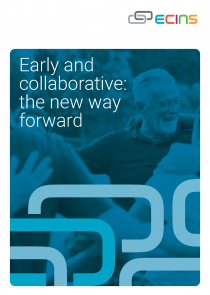Restorative justice (also sometimes called reparative justice) is an approach to justice that focuses on the needs of the victims and the offenders, as well as the involved community. Instead of satisfying abstract legal principles or punishing the offender. Victims take an active role in the process, while offenders are encouraged to take responsibility for their actions, “to repair the harm they’ve done — by apologising, returning stolen money, or community service”.
Restorative justice involves both victim and offender and focuses on their personal needs. In addition, it provides help for the offender in order to avoid future offences. It is based on a theory of justice that considers crime and wrongdoing to be an offence against an individual or community, rather than the state. Restorative justice that fosters dialogue between victim and offender shows the highest rates of victim satisfaction and offender accountability.
ECINS spoke to Sergeant Martin Steventon about Staffordshire’s Restorative Justice programme and how ECINS is helping them achieve their aims.
“Staffordshire is one of the National Pilot sites for the roll out of Neighbourhood Resolution Panels (NRPs). NRPs are fully trained community volunteers who possess RJ Conferencing skills that enable them to facilitate meetings between individuals in communities involved in a conflict. Aimed at low level crime and anti-social behaviour Staffordshire has 26 volunteers coordinated by an NRP Coordinator employed by Victim Support.
Staffordshire Police are training all officers and PCSO’s in delivering Restorative Justice in communities. ECINS is used to record any sort of RJ intervention and is accessible by all control room staff so that the system can be searched on behalf of operation officers considering its use.
Operational officers can refer matters they are dealing with to the NRP coordinator. ECINS is used to do this with the referring officer firstly discussing the case with a local RJ Champion. If the case is appropriate for referral a referral form is completed and attached to a task on ECINS which is sent to the NRP Coordinator.
If the referral is accepted by the NRP Coordinator then an ECINS case is commenced and the progress of the case managed through the ECINS System.
ECINS enables the recording of all RJ Interventions on a single database and the platform by which referrals can be made to the NRP Coordinator.”


